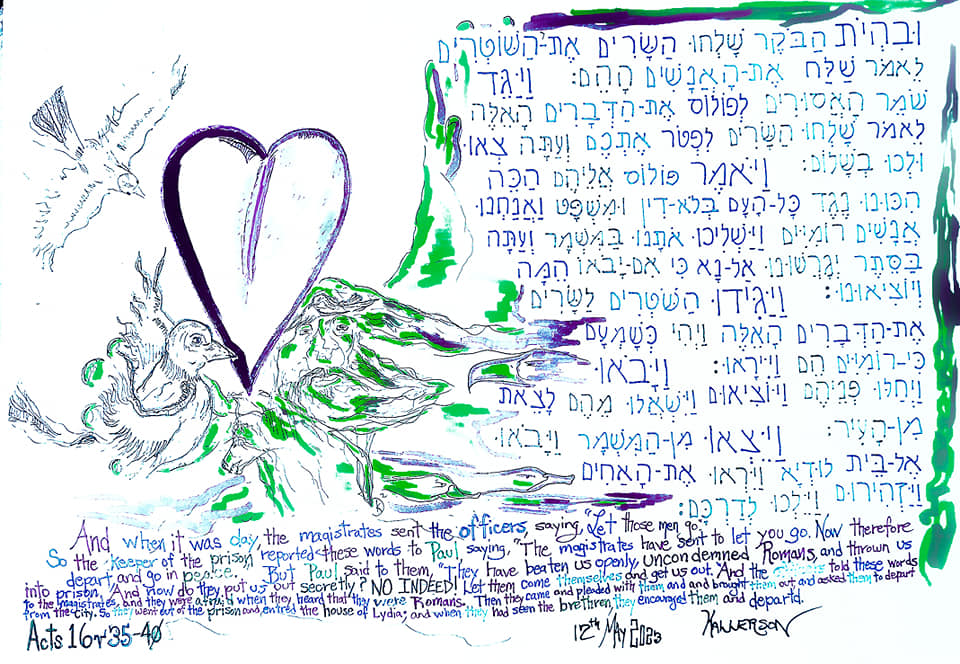Artwork by Douglas Kallerson
Friday, 19 May 2023
And the officers told these words to the magistrates, and they were afraid when they heard that they were Romans. Acts 16:38
Note: You can listen to today’s commentary courtesy of our friends at “Bible in Ten” podcast. (Click Here to listen)
You can also read this commentary, with music, courtesy of our friends at “Discern the Bible” on YouTube. (Click Here to listen), or at Rumble (Click Here to listen).
In the previous verse, Paul refused the notion that he and Silas were to be released secretly. Rather, he demanded that the magistrates come and personally release them. Luke now continues with, “And the officers told these words to the magistrates.”
A different word is translated as “words” here than in verse 16:36. There it was logos, the expression of a thought to the jailor – “let those men go.” Now, the word rhéma is used. It signifies an utterance or saying. Paul had thoroughly conveyed the situation in verse 16:37, and the sayings which he spoke forth have been transmitted to the magistrates by those who received them – “they have beaten us openly, uncondemned Romans, and have thrown us into prison.”
It is those sayings that were carried back to the magistrates by those who were sent. This is now the second and last use of the word rhabdouchos, or rod-bearer, in Scripture. They had been sent to tell Paul and Silas they could leave. With Paul’s refusal, they have carried their report back to the magistrates. Upon hearing these sayings, it next says of the magistrates that “they were afraid.”
Rather than Paul and Silas, it is the city’s magistrates who are the offenders. They were now liable for what had occurred under their direction and authority. This certainly came as an enormous shock to them “when they heard that they were Romans.”
It probably never dawned on them to even stop and ask. A complaint was made against them, noting that they were Jews. Further, the one complaining said that these Jews were teaching “customs which are not lawful for us, being Romans.” A contrast was made between “these Jews” and “us Romans” by the accusers. And so, without doing what they should have done, they shamefully treated Paul and Silas, Roman citizens.
Life application: If you are in a position of authority, the best thing to do is to try to seek out the details of a matter clearly and precisely. Sometimes, something seemingly convincing may not be that way at all. To assume without verification can lead to all kinds of trouble. Enmity between friends can arise. Divisions in the church may crop up. Jobs can be lost. One might become legally liable for making such a hasty and incorrect decision.
It is best to step back from a matter, do a careful check of the relevant details, and then act. Keep this in mind. Things that may seem small or unimportant may carry more weight than you realize.
Lord God, help us to use wisdom in how we interact with others, especially when there may be a point of conflict or trouble that arises. A little bit of due diligence can go a long way, so help us to remember this and apply it to our daily lives. Give us discernment and right thinking in this, O God. Amen.

